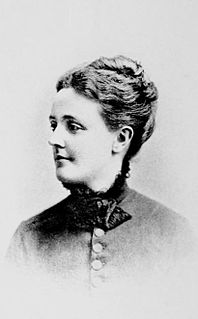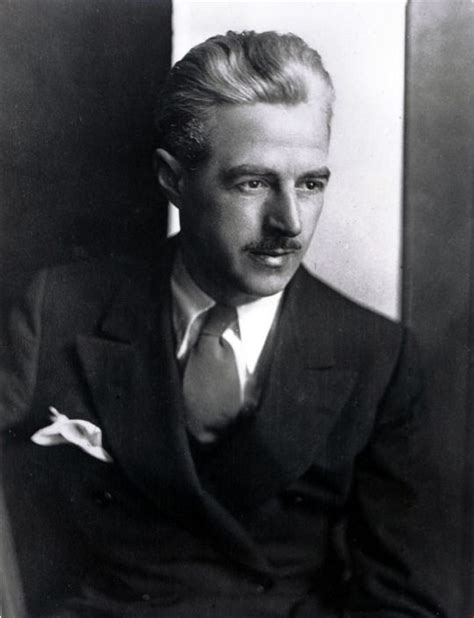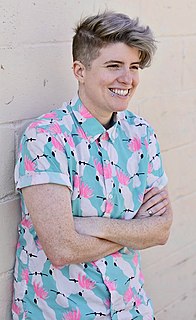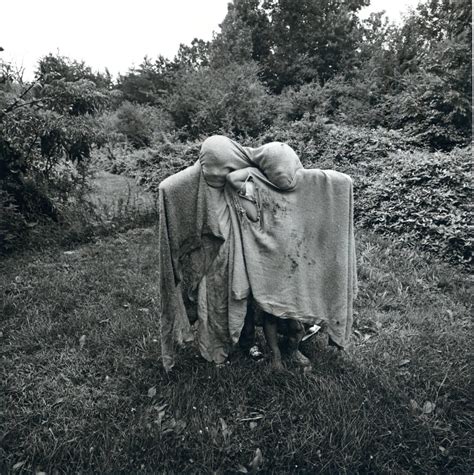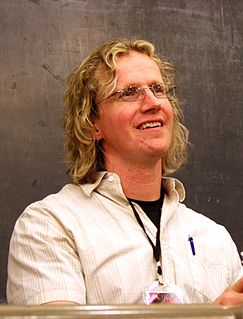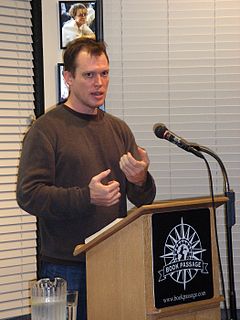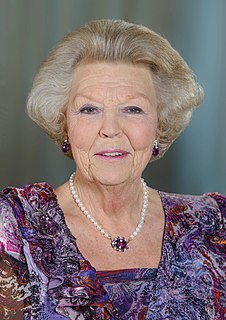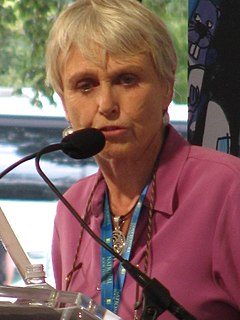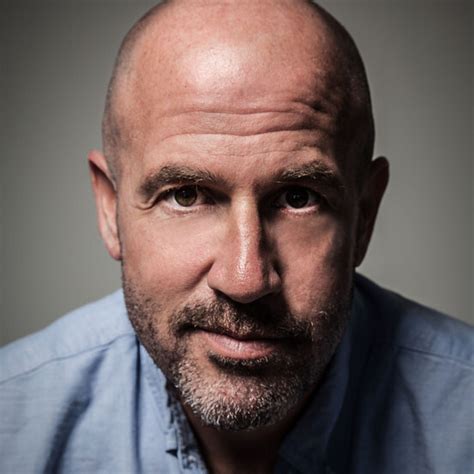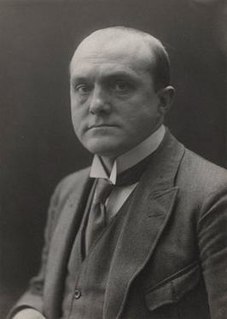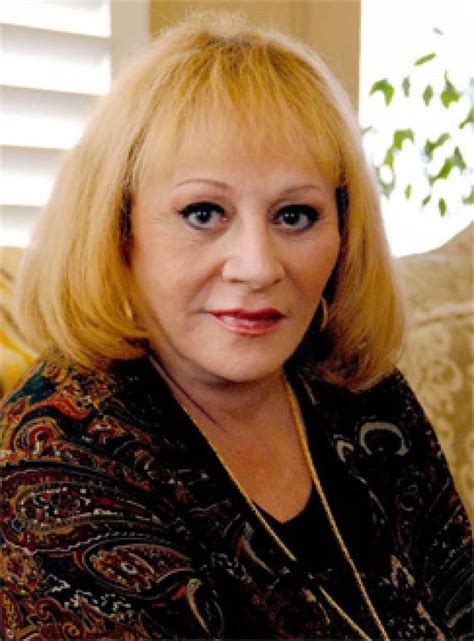Top 1036 Uncertainty Quotes & Sayings - Page 17
Explore popular Uncertainty quotes.
Last updated on April 20, 2025.
How do you get from, "We do not know whether this is protectable human life," to "Therefore, we will not protect it?" Wouldn't the logic just as likely (some would say far more likely) be, "Since we do not know whether this is protectable human life, therefore we will protect it?" Why does the judicial uncertainty about the humanity of the unborn lead to unbridled license to destroy it?
In this world that God (or Mother Nature) created, it is always hazard and novelty-hazard and novelty-which assert themselves, thereby rendering notions of fixity absurd. Incongruously enough, however, when we allow ourselves to fully accept uncertainty, to embrace and cultivate it even, then we actually can begin to feel within ourselves the presence of an Absolute. The person who cannot welcome ambiguity cannot welcome God.
Science tells us what we can know but what we can know is little and if we forget how much we cannot know we become insensitive of many things of very great importance. Theology, on the other hand induces a dogmatic belief that we have knowledge where in fact we have ignorance and by doing so generates a kind of impertinent insolence towards the universe. Uncertainty in the presence of vivid hopes and fears is painful, but must be endured if we wish to live without the support of comforting fairy tales.
To let God make us, instead of painfully trying to make ourselves; to follow the path that his love shows us, instead of through conceit or cowardice or mockery choosing another; to trust Him for our strength and fitness as the flowers do, simply giving ourselves back to Him in grateful service,—this is to keep the laws that give us the freedom of the city in which there is no longer any night of bewilderment or ignorance or uncertainty.
Which is to say that culture is not a reflex of political economy, but
that society is now a reflex of key shifts in music theory and practice....
[Sampladelia is] the sound made by those early-twentieth-century discoveries
in particle physics and relativiity theory, the projection of the minds of
Einstein, Heisenbery, and Bohr, their fateful explorations of liquid time,
curving space, uncertainty fields and relativity theorems, into densely
configured and fully ambivalent android music tracks
What makes us leave what we love best? What is it inside us that keeps erasing itself When we need it most, That sends us into uncertainty for its own sake And holds us flush there until we begin to love it And have to begin again? What is it within our own lives we decline to live Whenever we find it, making our days unendurable, And nights almost visionless? I still don't know yet, but I do it.
If the Universe came to an end every time there was some uncertainty about what had happened in it, it would never have got beyond the first picosecond. And many of course don't. It's like a human body, you see. A few cuts and bruises here and there don't hurt it. Not even major surgery if it's done properly. Paradoxes are just the scar tissue. Time and space heal themselves up around them and people simply remember a version of events which makes as much sense as they require it to make.
Love has a particular trait: far from being indulgent or fickle, it has a task or purpose to fulfil: to abide. By its nature love is enduring. Again, dear friends, we catch a further glimpse of how much the Holy Spirit offers our world: love which dispels uncertainty; love which overcomes the fear of betrayal; love which carries eternity within; the true love which draws us into a unity that abides!
Those who say they believe in God and yet neither love nor fear Him, do not in fact believe in Him but in those who have taught them that God exists. Those who believe that they believe in God, but without any passion in their heart, any anguish of mind, without uncertainty, without doubt, without an element of despair even in their consolation, believe only in the God-idea, not in God.
We're not obsessed by anything, you see," insisted Ford. "..." "And that's the deciding factor. We can't win against obsession. They care, we don't. They win." "I care about lots of things," said Slartibartfast, his voice trembling partly with annoyance, but partly also with uncertainty. "Such as?" "Well," said the old man, "life, the Universe. Everything, really. Fjords." "Would you die for them?" "Fjords?" blinked Slartibartfast in surprise. "No." "Well then." "Wouldn't see the point, to be honest.
The whole is a riddle, an enigma, an inexplicable mystery. Doubt, uncertainty, suspence of judgment appear the only result of ourmost accurate scrutiny, concerning this subject. But such is the frailty of human reason, and such the irresistible contagion of opinion, that even this deliberate doubt could scarcely be upheld; did we not enlarge our view, and opposing one species of superstition to another, set them a quarrelling; while we ourselves, during their fury and contention, happily make our escape into the calm, though obscure, regions of philosophy.
The gender prism is just descending upon us. For instance, when we're girls of nine or 10 we may be climbing trees and saying, "I know what I want. I know what I think." And then suddenly at 11 or 12, the gender role takes hold, and adults tell us, "How clever of you to know what time it is." It happens to boys, too and even sooner - between five and eight. Before that, boys cry and express uncertainty.
I know absolutely nothing about where I'm going. I'm fine with that. I'm happy about it. Before, I had nothing. I had no life, no friends, and no family really, and I didn't really care. I had nothing, and nothing to lose, and then I knew loss. What I cared about was gone; it was all lost. Now I have everything to gain; everything is a clean slate. It's all blank pages waiting to be written on. It's all about going forward. It's all about uncertainty and possibilities.
Taking ideas seriously does not fit with the rhetorical style of textbooks, which presents events so as to make them seem foreordained along a line of constant progress. Including ideas would make history contingent: things could go either way, and have on occasion. The 'right' people, armed with the 'right' ideas, have not always won. When they didn't, the authors would be in the embarrassing position of having to disapprove of an outcome in the past. Including ideas would introduce uncertainty. This is not textbook style.
I think that it's a great idea to have honest conversations about children before getting married. I also think it's impossible to promise someone, "What I want right now will never change, and as long as I promise you I do - or don't - want a child - or a specific number of children - before we get married, we will never have to experience fear, anxiety, uncertainty, or the pain of not getting what we want, when we want it.
The experience of being in between-between the time we leave home and arrive? at our destination; between the time we leave adolescence and arrive at adulthood; between the time we leave doubt and arrive at faith. It is like the time when a trapeze artist lets go the bars and hangs in midair, ready to catch another support: it is a time of danger, of expectation, of uncertainty, of excitement, or extraordinary aliveness.
Confined on the ship, from which there is no escape, the madman is delivered to the river with its thousand arms, the sea with its thousand roads, to that great uncertainty external to everything. He is a prisoner in the midst of what is the freest, the openest of routes: bound fast at the infinite crossroads. He is the Passenger par excellence: that is, the prisoner of the passage. And the land he will come to is unknown—as is, once he disembarks, the land from which he comes. He has his truth and his homeland only in that fruitless expanse between two countries that cannot belong to him.
Once, at the dreaming dawn of history -- before the world was categorized and regulated by mortal minds, before solid boundaries formed between the mortal world and any other -- fairies roamed freely among men, and the two races knew each other well. Yet the knowing was never straightforward, and the adventures that mortals and fairies had together were fraught with uncertainty, for fairies and humans were alien to each other.
Physicists often quote from T. H. White's epic novel The Once and Future King, where a society of ants declares, "Everything not forbidden is compulsory." In other words, if there isn't a basic principle of physics forbidding time travel, then time travel is necessarily a physical possibility. (The reason for this is the uncertainty principle. Unless something is forbidden, quantum effects and fluctuations will eventually make it possible if we wait long enough. Thus, unless there is a law forbidding it, it will eventually occur.)
An American leader would be derelict of duty if he did not seek to understand all his options in such unprecedented circumstances. Presidents Lincoln during the Civil War and Roosevelt in the lead-up to World War II sought legal advice about the outer bounds of their power - even if they did not always use it. Our leaders should ask legal questions first, before setting policy or making decisions in a fog of uncertainty.
Where focus goes, energy flows. And where energy flows, whatever you're focusing on grows. In other words, your life is controlled by what you focus on. That's why you need to focus on where you want to go, not on what you fear. When you next find yourself in a state of uncertainty, resist your fear. Shift your focus toward where you want to go and your actions will take you in that direction.
Both the five-year-olds looked at me with bewilderment and a bit of fearful uncertainty. I had a sudden horrifying image of the woman I might become if I'm not careful: Crazy Aunt Liz. The divorcee in the muumuu with the dyed orange hair who doesn't eat dairy but smokes menthols, who's always just coming back from her astrology cruise or breaking up with her aroma-therapist boyfriend, who reads the Tarot cards of kindergarteners and says things like, "Bring Aunty Liz another wine cooler, baby, and I'll let you wear my mood ring.
God's favorites, especially God's favorites, are not immune from the bewildering times when God seems silent. Where there is no longer any opportunity for doubt, there is no longer any opportunity for faith either. Faith demands uncertainty, confusion. The Bible includes many proofs of God's concern - some quite spectacular - but no guarantess. A guarantee would, after all, preclude faith.
That food nourishes, sleep refreshes, and fire warms us; that to sow in the seed-time is the way to reap in the harvest, and, in general, that to obtain such or such ends, such or such means are conducive, all this we know, not by discovering any necessary connexion between our ideas, but only by the observation of the settled laws of nature, without which we should be all in uncertainty and confusion, and a grown man no more know how to manage himself in the affairs of life than an infant just born.
Clearly, sustained low inflation implies less uncertainty about the future, and lower risk premiums imply higher prices of stocks and other earning assets. We can see that in the inverse relationship exhibited by price/earnings ratios and the rate of inflation in the past. But how do we know when irrational exuberance has unduly escalated asset values, which then become subject to unexpected and prolonged contractions as they have in Japan over the past decade?
If you like your soccer cerebral, and the triumph ultimately to be wrung out of staying power, Milan was the place to be. If you love the uncertainty of teams that cannot defend yet have the courage to attack, attack, attack, then Seville was heaven... The common denominator between the victories of Arsenal and Fenerbache? The strength of mind, the courage to dare in another team's domain, the inner belief that is as much a part of sporting success as the skill a fellow may be born with.
The mission of the law is not to oppress persons and plunder them of their property, even though the law may be acting in a philanthropic spirit. Its purpose is to protect persons and property.... If you exceed this proper limit -- if you attempt to make the law religious, fraternal, equalizing, philanthropic, industrial, or artistic -- you will then be lost in uncharted territory, in vagueness and uncertainty, in a forced utopia or, even worse, in a multitude of utopias, each striving to seize the law and impose it on you.
In the face of ambiguity, uncertainty, and conflicting demands, often under great time pressure, leaders must make decisions and take effective actions to assure the survival and success of their organizations. This is how leaders add value to their organizations. They lead them to success by exercising good judgment, by making smart calls when especially difficult and complicated decisions simply must be made, and then ensuring that they are well executed.
Life is infinite energy coupled with limitless creative imagination. It is the invisible essence and substance of every visible form. Its nature is goodness, truth, wisdom and beauty, as well as energy and imagination. Our highest satisfaction comes from a sense of conscious union with this invisible Life. All human endeavor is an attempt to get back to first principles, to find such an inward wholeness that all sense of fear, doubt and uncertainty vanishes.
The best reason to be assigned, in this case, for not having made the Constitution more free from a charge of uncertainty in its meaning, is believed to be, that it was not suspected that any such charge would ever take place; and it appears that no such charge did take place, during the early period of the Constitution, when the meaning of its authors could be best ascertained, nor until many of the contemporary lights had in the lapse of time been extinguished. How often does it happen, that a notoriety of intention diminishes the caution against its being misunderstood or doubted!
Perhaps we just need little reminders from time to time that we are already dignified, deserving, worthy. Sometimes we don't feel that way because of the wounds and the scars we carry from the past or because of the uncertainty of the future. It is doubtful that we came to feel undeserving on our own. We were helped to feel unworthy. We were taught it in a thousand ways when we were little, and we learned our lessons well.
It might take us a lifetime to find out what it is we need to say. Most of us fall into where our feelings are headed while we're quite young. But the beauty of all this uncertainty would be that in the process of exhausting all the possibilities, we might actually stumble unconsciously into the recognition of something that's useful to us, that speaks to a deep need within ourselves. At the same time, I like to think that in order for any of us to really do anything new, we can't know exactly what it is we are doing.
Nothing motivates like success. While academics, consultants and gurus are preoccupied with coming up with great insights and seminal ideas, usually they don't realize that making things happen, achieving operational excellence, moving the organization from uncertainty to clarity, from red ink to black, is what really creates hope for a better future. Therefore, great leadership always involves great ideas and real actions that reinforce a strong belief in the excellence of the decision makers and in the viability of the organization itself.
There’s faith that knows itself as faith, Proyas, and there’s faith that confuses itself for knowledge. The first embraces uncertainty, acknowledges the mysteriousness of the God. It begets compassion and tolerance. Who can entirely condemn when they’re not entirely certain they’re in the right? But the second, Proyas, the second embraces certainty and only pays lip service to the God’s mystery. It begets intolerance, hatred, violence.
A hero is also someone who, in their day to day interactions with the world, despite all the pain, uncertainty and doubt that can plague us, is resiliently and unashamedly themselves. If you can wake up every day and be emotionally open and honest regardless of what you get back from the world then you can be the hero of your own story. Each and every person who can say that despite life’s various buffetings that they are proud to be the person they are is a hero.
Transcendental meditation is one particular form of mantra meditation that allows your mind to experience progressively abstract fields of awareness. And ultimately you settle down in the space between your thoughts. The space between your thoughts is pure consciousness, and it's a field of possibilities. It's a field of creativity. It's a field of correlation. It's also a field of uncertainty. It's also a field where intention actualizes its own fulfillment. So that meditation allows you to contact this field, which is very primordial - the ground state of our existence.
Thus, the question of how and when to start vagabonding is not really a question at all. Vagabonding starts now. Even if the practical reality of travel is still months or years away, vagabonding begins the moment you stop making excuses, start saving money, and begin to look at maps with the narcotic tingle of possibility. From here, the reality of vagabonding comes into sharper focus as you adjust your worldview and begin to embrace the exhilarating uncertainty that true travel promises.
An argument is made that there are just too many question marks about the near future; wouldn't it be better to wait until things clear up a bit? You know the prose: "Maintain buying reserves until current uncertainties are resolved," etc. Before reaching for that crutch, face up to two unpleasant facts: The future is never clear and you pay a very high price for a cheery consensus. Uncertainty actually is the friend of the buyer of long-term values.
Ought a man to be confident that he deserves his good fortune, and think much of himself when he has overcome a nation, or city, or empire; or does fortune give this as an example to the victor also of the uncertainty of human affairs, which never continue in one stay? For what time can there be for us mortals to feel confident, when our victories over others especially compel us to dread fortune, and while we are exulting, the reflection that the fatal day comes now to one, now to another, in regular succession, dashes our joy.
In practice, some come to see easily, some with difficulty. But whatever the case, never mind. Difficult or easy, the Buddha said not to be heedless. Just that--don't be heedless. Why? Because life is not certain. Wherever we start to think that things are certain, uncertainty is lurking right there. Heedlessness is just holding things as certain. It is grasping at certainty where there is no certainty and looking for truth in things that are not true. Be careful! They are likely to bite you sometime in the future!
It is instructive to see how organizations pursue their goal of reducing errors and uncertainty. They impose standards, employ checklists, demand that knowledge workers list assumptions for their conclusions and document all sources. These actions either directly interfere with forming insights or create an environment where insights and discoveries are treated with suspicion because they might lead to errors. They signal to knowledge workers that their job is not to make mistakes. Even if they don't make discoveries, no one can blame them as long as they don't make mistakes.
You will find ambiguity a great ally on your road to power. Give a sign of Slytherin on one day, and contradict it with a sign of Gryffindor the next; and the Slytherins will be enabled to believe what they wish, while the Gryffindors argue themselves into supporting you as well. So long as there is uncertainty, people can believe whatever seems to be to their own advantage. And so long as you appear strong, so long as you appear to be winning, their instincts will tell them that their advantage lies with you. Walk always in the shadow, and light and darkness both will follow.
The problems of this world are so gigantic that some are paralysed by their own uncertainty. Courage and wisdom are needed to reach out above this sense of helplessness. Desire for vengeance against deeds of hatred offers no solution. An eye for an eye makes the world blind. If we wish to choose the other path, we will have to search for ways to break the spiral of animosity. To fight evil one must also recognize one's own responsibility. The values for which we stand must be expressed in the way we think of, and how we deal with, our fellow humans.
I define vulnerability as uncertainty, risk and emotional exposure. With that definition in mind, let’s think about love. Waking up every day and loving someone who may or may not love us back, whose safety we can’t ensure, who may stay in our lives or may leave without a moment’s notice, who may be loyal to the day they die or betray us tomorrow—that’s vulnerability.
Let us become thoroughly sensible of the weakness, blindness, and narrow limits of human reason: Let us duly consider its uncertainty and endless contrarieties, even in subjects of common life and practice.... When these topics are displayed in their full light, as they are by some philosophers and almost all divines; who can retain such confidence in this frail faculty of reason as to pay any regard to its determinations in points so sublime, so abstruse, so remote from common life and experience?
Now, since our condition accommodates things to itself, and transforms them according to itself, we no longer know things in their reality; for nothing comes to us that is not altered and falsified by our Senses. When the compass, the square, and the rule are untrue, all the calculations drawn from them, all the buildings erected by their measure, are of necessity also defective and out of plumb. The uncertainty of our senses renders uncertain everything that they produce.
So the Dark did a simple thing. They showed the maker of the sword his own uncertainty and fear. Fear of having done the wrong thing--fear that having done this one great thing, he would never again be able to accomplish anything of great worth--fear of age, of insufficiency, of unmet promise. All such great fears, that are the doom of people given the gift of making, and lie always somewhere in their minds.
The night comes for the purpose of checking our busy employment, and introducing an interval of repose between the links of our action and our aspiration. It draws its dim curtain around the field of toil. It buries the objects of our handiwork in darkness, and involves them with uncertainty. It comes to the relief of the exhausted body and the tired brain. Our powers, harmonizing with the diurnal revolutions of the earth, fail with the failing light, and a merciful Providence casts around us this mantle of shadow, and snatches us from our occupation.
I can't take not knowing what the next day will bring- the uncertainty is sawing me in two. The room is dark. A flickering candle burns on the window ledge a few feet away. I take a deep breath, which is to say, as deep a breath as I can take. "Are you okay?" Sarah asks. I wrap my arms around her. "I miss you," I say. "You miss me? But I'm right here." "That's the worst way to miss somebody. When they' re right beside you and you miss them anyway.
Marriages are always moving from one season to another. Sometimes we find ourselves in winter--discouraged, detached, and dissatisfied; other times we experience springtime, with its openness, hope, and anticipation. On still other occasions we bask in the warmth of summer--comfortable, relaxed, enjoying life. And then comes fall with its uncertainty, negligence, and apprehension. The cycle repeats itself many times throughout the life of a marriage, just as the seasons repeat themselves in nature.
Making art now means working in the face of uncertainty; it means living with doubt and contradiction, doing something no one much cares whether you do, and for which there may be neither an audience nor reward. Making the work you want to make means setting aside these doubts so that you may see clearly what you have done, and thereby see where to go next. Making the work you want to make means finding nourishment within the work itself.
The paradox of love is that to have it is to want to preserve it because it's perfect in the moment but that preservation is impossible because the perfection is only ever an instant passed through. Love like travel is a series of moments that we immediately leave behind. Still we try to hold on and embalm against all evidence and common sense proclaiming our promises and plans. The more I loved him the more I felt hope. But hope acknowledges uncertainty and so I also felt my first premonitions of loss.
In terms of the game theory, we might say the universe is so constituted as to maximize play. The best games are not those in which all goes smoothly and steadily toward a certain conclusion, but those in which the outcome is always in doubt. Similarly, the geometry of life is designed to keep us at the point of maximum tension between certainty and uncertainty, order and chaos. Every important call is a close one. We survive and evolve by the skin of our teeth. We really wouldn't want it any other way.
I've had two great years, probably five good years. So I had 20 years of just kind of uncertainty and suffering and ego destruction and poverty. All these things. There's no way I'm ever going to catch up to the misery years. It's impossible... If I don't do anything dumb or I don't get a disease or something, and then I've got to five to eight years I think where it'll really be great and then it will start to degenerate like uranium, you know?
Five hundred years before Christ was born, the Greek philosopher Heraclitus told his students that "everything changes except the law of change". He said: "You cannot step in the same river twice." The river changes every second; and so does the man who stepped in it. Life is a ceaseless change. The only certainty is today. Why mar the beauty of living today by trying to solve the problems of a future that is shrouded in ceaseless change and uncertainty-a future that no one can possibly foretell?
Often, very often, I am alone. My studio in Amsterdam, (Beckmann lived in the center of Amsterdam during World War 2.) an enormous old tobacco storeroom is again filled in my imagination with figures from the old days and from the new, like an ocean moved by storm and sun and always present in my thoughts. Then shapes become beings and seem comprehensible to me in the great void and uncertainty of the space which I call god.
I'm tired of being scared, and I know you are too. Not that there isn't alot to be scared of in this world today, between the non-stop headlines about wars and nuclear power plants and terrorists and assasinations and civil unrest and economic uncertainty and political doublespeak and insane weather and an environment that's becoming unhealthier by the day. But a point comes when it's too much to deal with, and thinking about it accomplishes nothing more than sending you to bed with a cold cloth on your head.
I push against the tree and run away, stumbling, the unreal night playing with me, gravity pulling from below, behind, above, making me fall. And I run through a world that is rotating, conscious of the earth's spin, of our planet twirling as it careens through nothingness, of the stars spiraling above, of the uncertainty of everything, even ground, even sky. Mumtaz never calls out, although a thousand and one voices scream in my mind, sing, whisper, taunt me with madness.
I can live with doubt and uncertainty and not knowing. I think it is much more interesting to live not knowing than to have answers that might be wrong. If we will only allow that, as we progress, we remain unsure, we will leave opportunities for alternatives. We will not become enthusiastic for the fact, the knowledge, the absolute truth of the day, but remain always uncertain … In order to make progress, one must leave the door to the unknown ajar.
In the face of uncertainty, many companies will default to asking their innovators to study and analyze, which can't actually ever provide a definitive answer. The decision-making systems here are meant to deal with the reality that decisions about innovative ideas will rely on patterns and intuitions. The best venture capital organizations deal with this challenge by staging investment, actively participating in startups they fund, tying decisions to learning as opposed to artificial dates on the calendar, and assembling a diverse team of decision-makers.



